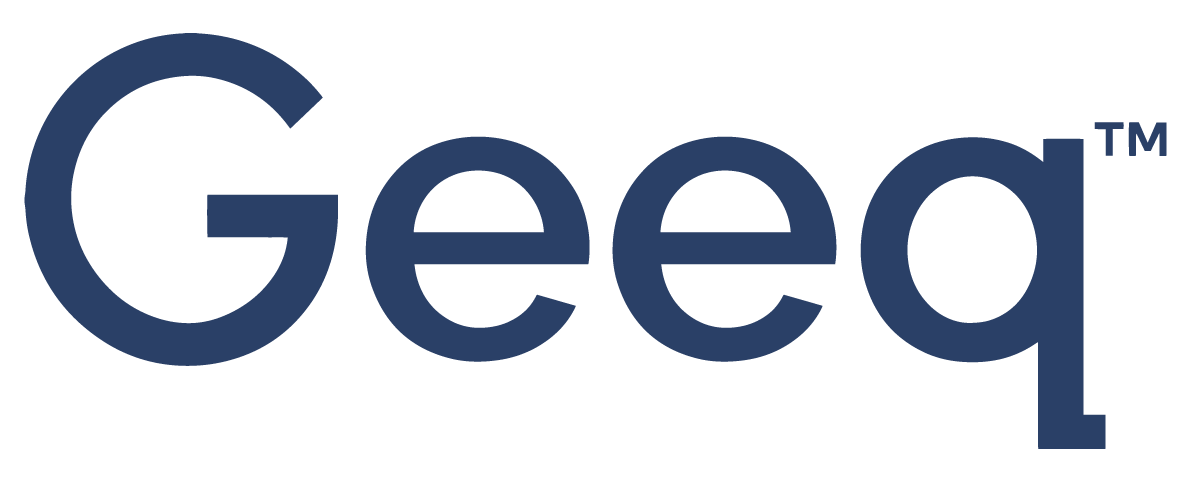
Hash
What does Hash mean?
A hash is a compact way to “freeze” a snapshot of data in time.
Main Idea:
Blockchain databases are append only, which means new data are continually packaged up in a new block and added to the end of an already existing set of blocks. Because blockchains are always growing, much of the data is represented and compressed through a technique called hashing.
If you are completely unfamiliar with hashing, this explainer was written for you: Geeq Demystifies : The Hardworking Hash.
Hashing also plays an important role in ensuring blocks are ordered sequentially.
Vocabulary for Hashes:
Hash – noun – (also called “hash digest”): An output of fixed length, after putting an input into a cryptographic (hashing) algorithm. The same input always results in the same output.
Hash – verb – to take an input, called a “pre-image” into a hashing algorithm, in order to obtain the hash digest of the pre-image. Theoretically, any data that can be translated into bytes (bits) can be hashed. Sometimes apps will not support the hashing of certain file types; however, that is a choice in developing the app rather than a limitation of the hash function.
Hash algorithms or hash functions – cryptographic functions that are publicly known. Geeq uses Blake3, which produces a 32 byte (256 bit) output. A byte = 8 bits.
Hash collision – a case where two or more distinct pre-images result in the same hash. There are approximately 2256 or about 1077 possible combinations for a 256 bit string. The odds of finding other pre-images that result in the same 256 bit string are very small and to do so would take a great deal of computing power. Nonetheless, there are checks in Geeq’s protocol for collisions.
The central motivation to use blockchain:
Our view is that Geeq blockchain is the solution for you to use whenever it is costly to establish or coordinate trust in the data. For example, you may face challenges where you need to know your data is being recorded:
- in a timely fashion,
- without bias,
- accurately, and
- in an irrefutable way.
Geeq’s blockchain offers a simple and cost-effective way for you to submit your data, knowing all of these conditions will be met. It is also fast, easy, and inexpensive for you to verify these facts for yourself.
To do that, you will need a few simple tools. One tool is the hash of your data.
Big Idea – A hash helps you to verify your data to a regulator
Recall, the hash function is publicly known and If you use the same hash function, the same input will always result in the same output.
As you can see when you test the Geeq Data app, the app hashes your data and submits only the hash with your transaction to the block. In many deployments, it will not be necessary to show that pre-image to anyone outside of your permissioned circle.
To prove to a third party, such as a regulator, that you submitted exactly that data, nearly all you need is a single copy of the original pre-image. Being able to hash your original data and show it matches the hash recorded with your transaction is an efficient way to back up that specific claim, without having to expose any other data to the regulator.
We will explain the other elements of the proof in a different article. Suffice it to say, it is straightforward to prove correctness of a transaction at Geeq without exposing all of your other data. Automating auditable records in real time, with independent proof of data integrity is one of the unique selling points of Geeq.
Conversely, it is not practical for someone to attempt to falsify your data because they would have to present a pre-image that hashes to the same result as yours. To have a 10% chance of finding such a collision would take more computational effort than using the entire Bitcoin mining pool to guess for 1049 years.
Used in a Sentence:
At Geeq, your public user account (address) number is the hash of your public key.
Last Updated: June 20, 2023
Read what Geeq has to say about Hash...
The following articles are written by the Geeq team to share and inform about the industry we are passionate about.
To learn more about events, announcements and learn about other topics visit our news section
Community announcement - Tokenomics Update - January 2024
Why has Geeq taken a no-smart contracts route? To deliver an efficient, reliable, predictable engine to solve these three problems and more.
Here are 5 reasons why Geeq is poised to set the world's standards in decentralized, verifiable blockchain - at Layer 0.
Discover 7 powerful ways Geeq Stacks revolutionize digital assets. Simplify organization, ensure security, and stay in control. From creative collections to seamless transfers, Stacks make it intuitive.
8 Ways Geeq is the Essential Foundation for Blockchains. Here are the reasons Geeq provides the Layer 0 (L0) foundation that blockchains and smart contracts need.
How can the market separate "review bombing" from authentic testimonials? As with any policy, the risk is either going too far or not far enough. Read Geeq's solution.
UPDATE: Now with links to video and Slides! John P. Conley introduced Geeq's Algorithmic Monetary Policy and Stabilized Token to the public at SFBW.
This is the Geeq token allocation and release schedule. Please note: Geeq did not hold an ICO or IDO.
Ask Me Anything on Telegram: TH 1/24/2019, 4 pm EST
Details are available for the official GEEQ contract address.
$GEEQ has partnered with Ferrum Network to offer non-custodial liquidity staking. Watch this space!
Late Friday Update for Geeq Tokens - The Unlocked-round is fully subscribed. The Pre-round is still OPEN.









